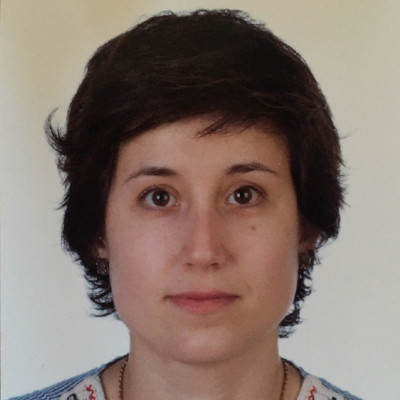About
Our group is interested in the analysis and prediction of complex traits and diseases using genetic (integrating pedigrees, genomics, and other omics) and environmental information. Our research involves methods, software development, and applications in human health, plant and animal breeding. Most of us are affiliated with the Department of Epidemiology and Biostatistics at Michigan State University.
Projects
Genomic Analysis and Prediction of Complex Traits. Development and evaluation of methods and software for analysis and prediction of complex traits using high-dimensional genomic data (e.g., SNPs, genotyping by sequencing, and other types of sequence data). Our research in this area has focused on the use of shrinkage and variable selection in parametric models, as well as on the use of some semi-parametric methods (e.g., RKHS).
Genomics x Environment. Development of methods for integrating high-dimensional genomic and environmental data in a unified framework. We have developed methods that can model interactions between high-dimensional marker panels and high-dimensional environmental covariates. These methods were originally developed and tested with data from wheat trails. We are currently extending some of these methods for analysis of complex human traits and diseases.
Integration of Data from Multiple Omics Layers. Development of models and software for integrating high-dimensional multi-layer omics data. Our focus is on methods that can integrate whole-omics profiles and can model interactions between two or more high-dimensional predictor sets (e.g., genome-by-methylome interactions). We are currently working on using these methods for prediction of breast cancer outcomes and in plant omics applications.
Software development for analysis of big omics data. We have developed several R packages for genetic analysis using pedigrees, genomes and other omics (see software below for further details).
Genomic Analysis of Obesity and Response to Exercise. We maintain an active collaboration with researchers from the TIGER (Training Interventions and Genetics of Exercise Response) study, developing and implementing methods for the identification of genetic factors influencing Body Composition and Response to Exercise Intervention.
Software
BGLR. The Bayesian Generalized Linear Regression R package implements a variety of shrinkage and variable selection methods. The package can be used with whole-genome data (e.g., SNPs, gene expression or other omics), pedigrees and non-genetic covariates, including high-dimensional environmental data. Article CRAN Source Code
BGData. A suite of R packages to enable analysis of extremely large genomic data sets (potentially millions of individuals and millions of molecular markers). Article CRAN Source Code
pedigreemm. An R package for analysis of complex traits and diseases using generalized linear mixed models using likelihood methods. Article Documentation CRAN
pedigreeR. R functions related to pedigrees. Source Code
MTM. Implements a Bayesian Multi-Trait Gaussian models with user defined-(co)variance structures. Documentation Source Code
GPTL. Improving Polygenic Score Prediction for Underrepresented Groups Through Transfer Learning. Pre-print article Source Code
People

Ben Smith
- Areas of Interest: DNA methylation, epigenetics, and statistical genetics.


Harish Neelam
- Areas of interest: Statistical genetics, Computational precision health and Clinical statistics


Ana I. Vazquez Associate Professor
- Areas of Interest: Statistical Genetics, Animal Breeding, Software Development
- Links: Website, GitHub
- Software: pedigreemm, Rpedigree

Fernando Aguate Postdoc
- Areas of Interest: Biostatistics, Statistical Genetics, Plant Breeding, Software Development
- Links: Website, GitHub, Google Scholar
- Also joined us as a visitor in 2016 while at Facultad de Ciencias Agropecuarias, Universidad Nacional de Córdoba (Argentina)


Gustavo de los Campos Professor

Harold Wu PhD Candidate
- Areas of Interest: Statistical Genetics, Biostatistics
- Links: Google Scholar, GitHub
- Software: GPTL

Marco López-Cruz Postdoctoral Research Associate
- Areas of Interest: Biostatistics, Statistical Genetics, Plant Breeding
- Links: Google Scholar, GitHub
- Software: META-R, SFSI

Paulino Pérez Associate Professor
- Areas of Interest: Biostatistics, Software Development
- Links: Google Scholar
- Software: BLR, BGLR, ars, brnn
Past Members


Elizabeth McMahon
- Areas of Interest: Biostatistics, Statistical Genetics, Psychopathology, Clinical Trials, Pharmacology.

Mingyue Tan
- Areas of Interest: Protein analysis, especially applying statistical methods to them.

Agustín González Reymúndez Postdoc
- Areas of Interest: Genomic tools for QTL mapping and genomic prediction, with applications in human genetics and plant breeding

Alexa Lupi PhD Student
- Areas of Interest: Biostatistics, Statistical Genetics, Epidemiology

Alexander Grueneberg Programmer
- Areas of Interest: Software Development
- Links: Website, GitHub, Google Scholar
- Software: BGData

Anirban Samaddar PhD Student
- Areas of Interest: Bayesian Statistics, Time Series, Statistical Genetics

C. Austin Pickens Doctoral Candidate
- Areas of Interest: Novel biomarker discovery using mass spectrometry-based lipidomics and disease prediction
- Links: GitHub, ResearchGate

Deniz Akdemir Postdoc
- Areas of Interest: Data Mining, Multivariate Statistics, Statistical Genetics, Animal and Plant Breeding

Felix Enciso PhD Candidate
- Areas of Interest: Genome-wide association and genome selection studies for complex traits in potato, genetic engineering in potato using CRIPRS/Cas9 technology
- Links: GitHub, Publications

Filipe Couto Postdoc
- Areas of Interest: Biostatistics, plant Breeding, genome-wide association studies and prediction of complex traits in plants

Gabriel Rovere Postdoc
- Areas of Interest: Animal Breeding. Livestock Genetic Evaluations, Horse Breeding, Breeding Goals.


Hwasoon Kim Postdoc


Mengying Sun Research Assistant
- Areas of Interest: Statistical Modeling
- Links: GitHub

Michael P. Behring PhD Candidate
- Areas of Interest: Epidemiology, Genetics of Cancer


Raka Mandal PhD Student
- Areas of Interest: Biostatistics, Statistical Learning, Bayesian Statistics

Scott Funkhouser PhD Student

Shyamali Mukerjee Master Student
- Areas of Interest: Statistical Genetics, Application of Statistical Methods to Public Health Issues

Siddharth Avadhanam Master Student
- Areas of Interest: Statistical Genetics, Biostatistics, Bioinformatics

Wesley Bird Undergraduate Student
- Areas of Interest: Medical Laboratory Science and Human Biology
- REPID Scholar


Yeni Liliana Bernal Rubio Postdoc
- Areas of Interest: Statistical Genetics, Genomic Evaluation Complex Traits, Software Development
- Software: Meta-Analysis GWA from GBLUP, GWA from GBLUP models

Yogasudha Veturi PhD Candidate
- Areas of Interest: Biostatistics, Statistical Genetics, Plant Breeding
Visitors
2018

Cecilia Salvoro
- Affiliation: Department of Biology, University of Padova, Padova, Italy
- Areas of Interest: Human Genetics, Next-generation Sequencing, Genetic Mapping of Diseases, Prediction of Eye Color
- Links: ResearchGate

Maria Martinez Castillero
- Affiliation: University of Padova (Italy)
- Areas of Interest: Quantitative genetics, programming, animal science
- Links: LinkedIn

Pernille Bjarup Hansen
- Affiliation: Department of Molecular Biology and Genetics, Aarhus University, Flakkebjerg, Denmark
- Areas of interest: Plant genetics, quantitative genetics, abiotic stress and plant breeding
2017

Muhammad Yasir Nawaz
- Areas of Interest: Genomic prediction, Livestock breeding, Application of statistical methods to public and animal health issues
2016

Hugo O. Toledo Alvarado
- Affiliation: Università degli studi di Padova (Italy)
- Project: The use of Fourier-Transform Infrared (FTIR) Spectra as an innovative tool for predicting fertility traits in dairy cattle

M. Angeles Pérez-Cabal
- Affiliation: Complutense of University of Madrid (Spain)
- Areas of Interest: Animal Breeding
2015

Juan Pablo Gutierrez Garcia
- Affiliation: Complutense of University of Madrid (Spain)
- Areas of Interest: Animal Breeding and Conservation Genetics
- Links: Website
2014

Christina Lehermeier
- Affiliation: Plant Breeding, Technische Universität München (Germany)
- Areas of Interest: Statistics, Quantitative Genetics, Plant Breeding
- Links: Google Scholar, TUM Plant Breeding

Swetlana Berger
- Affiliation: Georg-August-Universität Göttingen (Germany)
- Areas of Interest: Scale effects in genomic modelling and prediction
